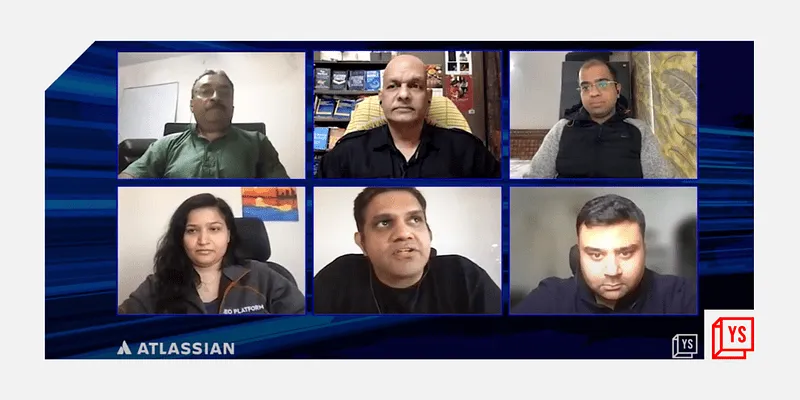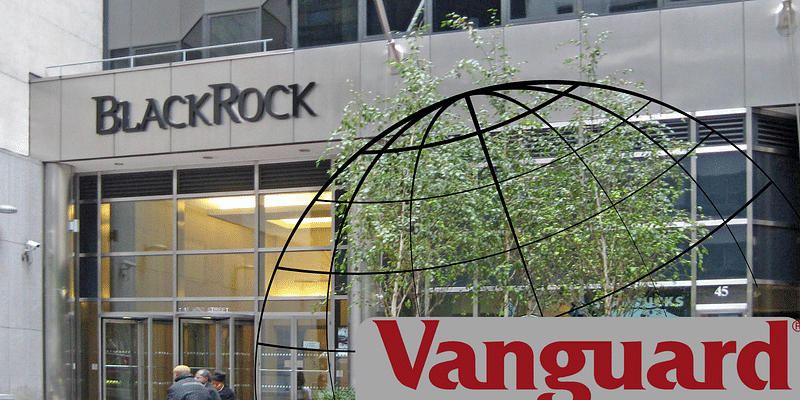
Atlassian
View Brand PublisherIntegration, innovation, and integrity: Key factors to solve cloud engineering challenges
Senior architects and engineers from leading startups discuss complexities in building internal cloud platforms, and how engineering teams can solve these challenges at a roundtable discussion hosted by Atlassian.
The unprecedented growth and interest in the SaaS sector has led many new-age SaaS companies to often create more than one software application to meet their external and internal goals. These software applications are mostly large, complex, and expensive to build and maintain.
Though cloud providers like AWS and Azure provide a number of capabilities to build and run software services, these companies rely on internal cloud platforms to abstract distributed computing problems such as computing platforms, data, security, scale, and more that arise for engineering teams building such complex applications.
Atlassian and YourStory collaborated for a roundtable discussion on ‘Cloud engineering challenges in building software platforms to support large, complex distributed applications’, featuring Binod PG, Senior Architect, Atlassian; Venkatesan Vaidhyanathan, Senior Technical Architect, ; Sarika Atri, Senior Architect, ; Keshav Modi, Principal Architect, ; and Gaurav Gupta, Principal Engineer, .

Challenges and opportunities
“Problems like scaling the system, authentication, authorisation, distributed data management, and more are common underlying issues. When you let the teams solve these independently, that’s where a business can experience the goodness of a cloud platform,” said Flipkart’s Sarika, talking about the productivity boost a business can experience while using a cloud platform.
Binod spoke about Atlassian’s internal Platform-as-a-Service (PaaS) called Micros, which is a set of tools, services, and environments that enable its engineers to deploy and operate services in AWS as quickly, easily, and safely as possible. This infrastructure makes integration with standard company tooling and processes easier to implement, projects with sweeping changes become more predictable, and helps in multiplying an engineer’s expertise.
Venkatesan from Razorpay mentioned that the infrastructure at Razorpay is at core which gives them opportunities to standardise, centralising solutions.
Speaking about the advantages of the cloud, Keshav from BankBazaar said that their cloud solutions enable them to focus on business problems as the other problems such as hardware, managing database, security, and more.
Gaurav from InMobi shared a different perspective and spoke about some of the challenges of adopting cloud solutions. “The flexibility you get from having your own tool set or leveraging your own open source platform, you give up some of that in favour of operational overhead that you don’t have to maintain anymore,” he added.
The trust factor
“The objective of any SaaS or cloud company, in respect of security, should be to establish and maintain the trust of the customer,” said Binod highlighting the benefits cloud platforms provide to build software at a massive scale.
“Evolving needs of Atlassian’s engineers and cloud customers are the main drivers of our platform,” quipped Binod talking about the company’s endeavor of improving the developer experience and increasing the speed at which engineers can innovate. Additionally, Atlassian also plays a key role in strengthening security, reliability and performance of its cloud products.
Other panelists also shared insights on the efforts being taken to improve the experience of the engineers and the need for maintaining security and compliance while scaling cloud platforms.
“For us, our developers are the blood and sweat of our company. We believe in incentivising our developers by gamification of security. We educate them [regarding security], gamify the efforts and thereby build security champions across these various groups who internally evangelise these practices,” said Venkatesan reiterating that Razorpay is driving a cultural shift in the way security is understood and built at the company.
Building on Venkatesan’s statement, Gaurav elaborated on reasons for which the security team and developers work in tandem at InMobi. Calling “developers as the first line of defence”, he added, “Business and infrastructure need to work in conjunction to make sure that we are protected against any threats.”
Talking about Flipkart’s approach towards security and compliance, Sarika mentioned that the company is investing in “building security champions within each organisation who are responsible for taking the conversation ahead and act as the first line of defence”. She further spoke about different dimensions of security and compliance which included security vulnerabilities, encryption of data, authentication of your services, access to PII data, and more. “We are using a lot of cloud offerings but we have some custom solves on top of the cloud, which are built for various specific flows within different teams and portfolios,” added Sarika.
Keshav spoke about the advantage of cloud in reducing overheads in managing platform or infrastructure security. “When you adopt the cloud, you bring a lot of standardisation across your components … I don’t think of the cloud as a one-stop solution to solve your every security need … We need to ensure that security is not an afterthought and when security is included in the application design right from the beginning. At BankBazaar, we started talking about security at the design stage itself,” added Keshav.
Diving deeper into the security aspect, all the speakers reiterated the importance of imbibing security and compliance as one of the core elements while building a business to ensure a solid and sustainable growth.











